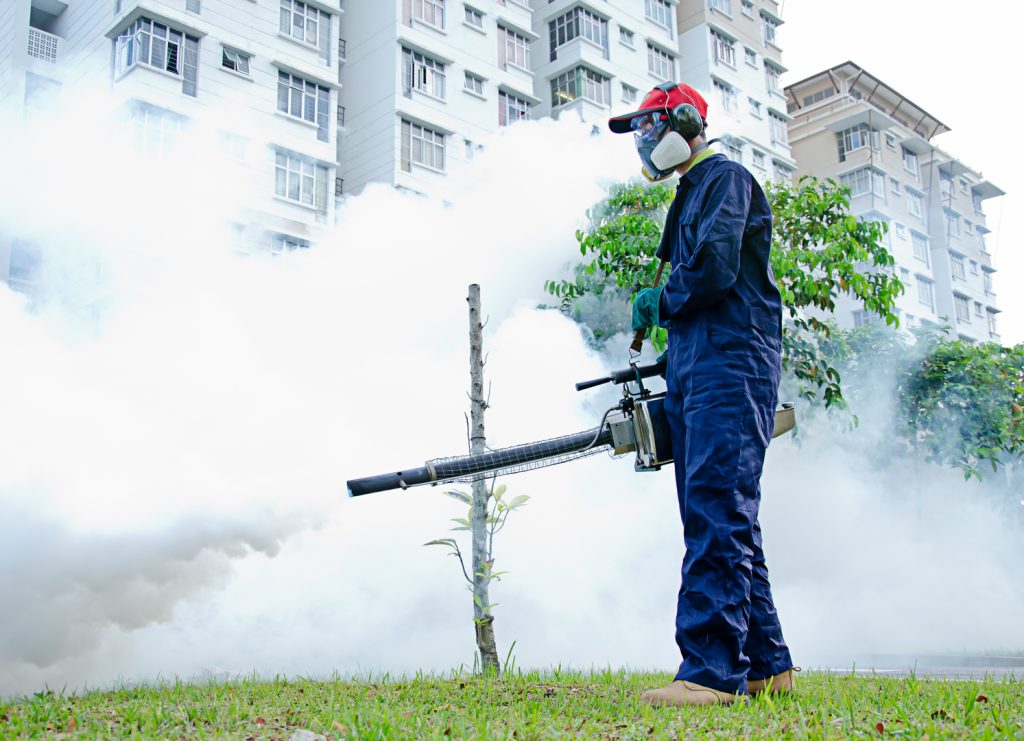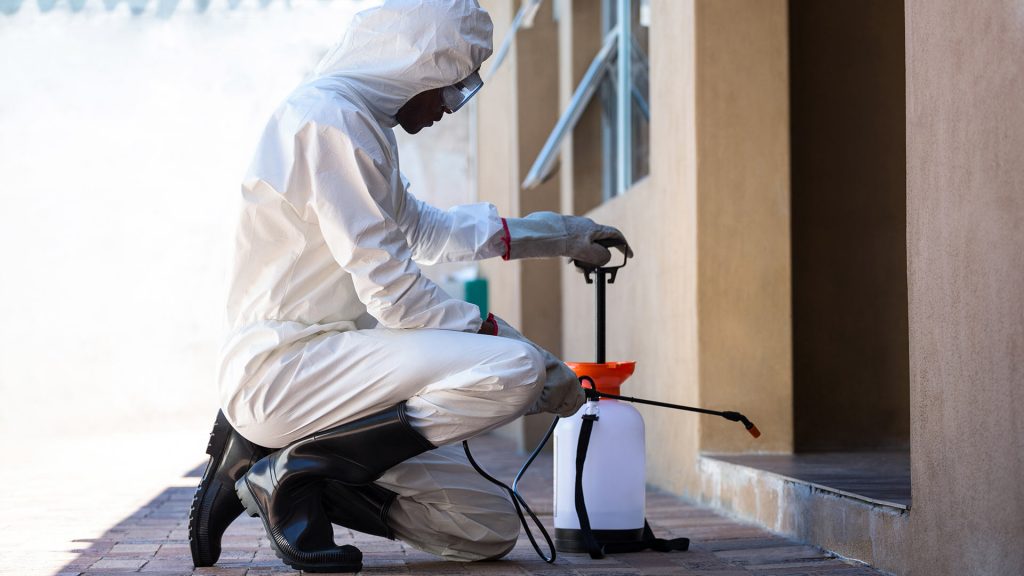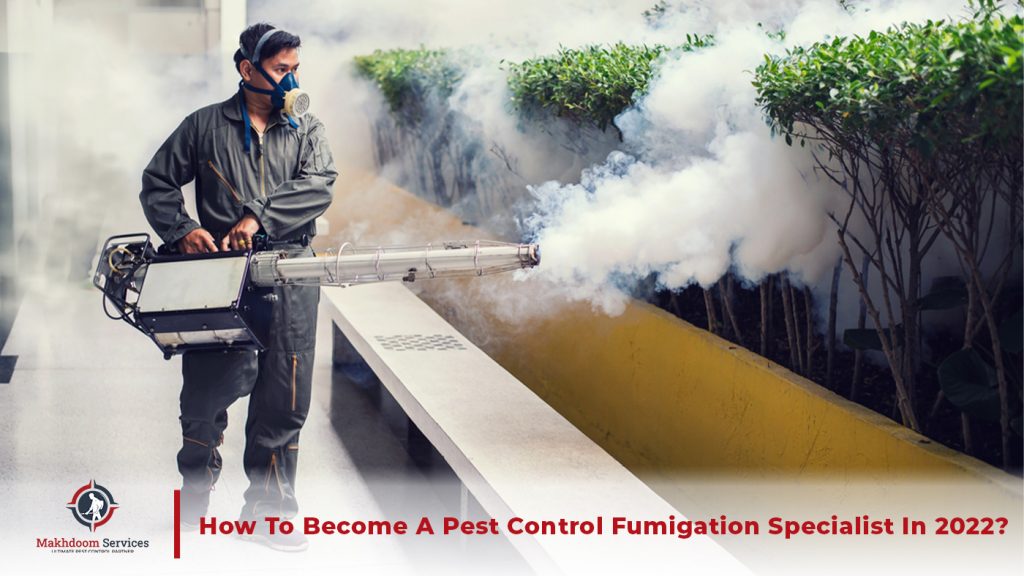You’ll need strength and endurance to handle heavy equipment, customer service skills to engage with clients, organizational abilities to manage your calendar of appointments, and attention to detail to discover and fix pest control concerns if you want to succeed as a pest control Fumigation.
What Exactly Does a Fumigation Expert Do?
Fumigators use fumigants, which are harmful gases, to manage pests. Fumigators inspect, measure, and seal contaminated structures before fumigating them.
Become a Pest Control Fumigation Specialist:
A pest control technician Working independently, mingling with others, and working outside are all advantages of fumigation. Pest control regulations are required by legislation in many commercial businesses, including health care, food service, food processing, etc. The pest control sector is rapidly expanding with several employment openings, and the criteria for becoming a pest control specialist in Lahore vary.

1. Earn a High School Diploma or Obtain a GED:
Most pest control companies demand a high school diploma or its equivalent. You’ll need strong arithmetic, writing, and chemistry abilities to work as a pest control professional. Knowing how to identify pests and their biology is also essential for this job.
2. Possess a Clean Driving Record:
Controlling pests Throughout the day, there will be a fumigation drive to several areas. Most employers need their employees to have a very strong driving record in a large sense. Avoid receiving any traffic tickets (e.g., speeding tickets, automobile accidents, parking fines) and take care of any violations on your record.
- If you’re unclear about your driving record, get a copy from your state’s Department of Motor Vehicles. Discuss strategies to improve your record with the DMV, such as attending a driving safety course.
3. Finish a Training Course:
Community colleges, technical centers, university extension programs, and pest control training facilities are all where you may get pest control training. Make sure your state’s pesticide regulating board recognizes the school. You will get classroom teaching solely throughout your first training, which will prepare you for entry-level employment as a pest control technician.
- You’ll learn about rodent control, termite management, pesticide usage, and safety during pest control fumigation training.
- To be a pest management professional, you must have a thorough understanding of pest biology and science. This allows you to assess a situation and determine the best course of action.
- Training can usually be completed in 3 months or less.
4. Take Advantage of On-The-Job Training:
Your company will provide you with hands-on training after you have completed a pest control training program. You’ll most likely work as an apprentice under the supervision of a licensed professional. You will be entitled to sit for your certification exam once completed your apprenticeship. Some companies provide both classroom and on-the-job training. If you work for one of these firms, you won’t need a pest control training program. This is more likely to be offered by large corporations.
- Some companies provide both classroom and on-the-job training. If you work for one of these firms, you won’t need a pest control training program. This is more likely to be offered by large corporations.
- The amount of on-the-job training you’ll require depends on the state where you’ll be working. Before starting training, be sure you know your state’s requirements.
5. Know the Risks:
Working with pesticides is dangerous because you are constantly exposed to toxins. The majority of pesticides include signal phrases that indicate how hazardous they are. “Caution” denotes items with lesser toxicity. The word “warning” denotes a product with a medium level of toxicity. “Danger” denotes goods with a high level of toxicity. Long-term pesticide exposure is linked to detrimental health impacts, even if you don’t notice any symptoms right away (e.g., cancer, liver problems, reproductive issues). It would be best to take precautions to reduce your risk while working.

6. Reduce The Amount of Time You’re Exposed:
Always follow the label recommendations for any pesticides you apply and make sure you’re wearing your PPE (PPE). Take off your shoes before entering the house, shower, and wash your clothing when you arrive home from work.
Job Description for a Pest Control Technician
Technicians in pest control are responsible for the safe operation of equipment, the proper handling of chemicals, and the clean-up once the task is completed. Excellent customer service skills are required to persuade frightened residents that their pest infestation issues can be managed. They follow up to ensure that the remedy is permanent. Keeping track of chemical applications, invoicing for services, and giving receipts are all administrative responsibilities.
Industry of Pest Control
Pest control specialists wear personal protective equipment to decrease the danger of exposure to harmful chemicals. They have to crawl through tiny passages and scale ladders. When seasonal pest issues are acute, some may call for urgent emergencies, and their hours can belong. They are required to drive business trucks and operate in inclement weather. Contact with aggressive pests such as stinging wasps and dangerous spiders’ bites is common in a pest control service.
Years of Experience
Large, national pest treatment organizations employ many pest control technicians and provide initial and continuous training that can lead to several certifications and extended employment options. Pest control professionals with more experience can advance to managerial roles, and some even establish their pest management businesses.
The Fumigation License
According to Pest Control Everything, all pest-control licensing regulations are regulated at the state level. What kind of fumigation training do you need? Is it necessary for you to attend fumigation school? Everything is in the hands of the government. You must pass a test and get experience in the pest control sector in Lahore. There are numerous pest control licenses available, so decide which one is right for you. A fundamental pest-control test is required and a second exam for fumigation certification. Pesticides, pesticide equipment, pesticide impacts on the environment, fumigation procedures, safety, and related legislation are all included in the testing.

